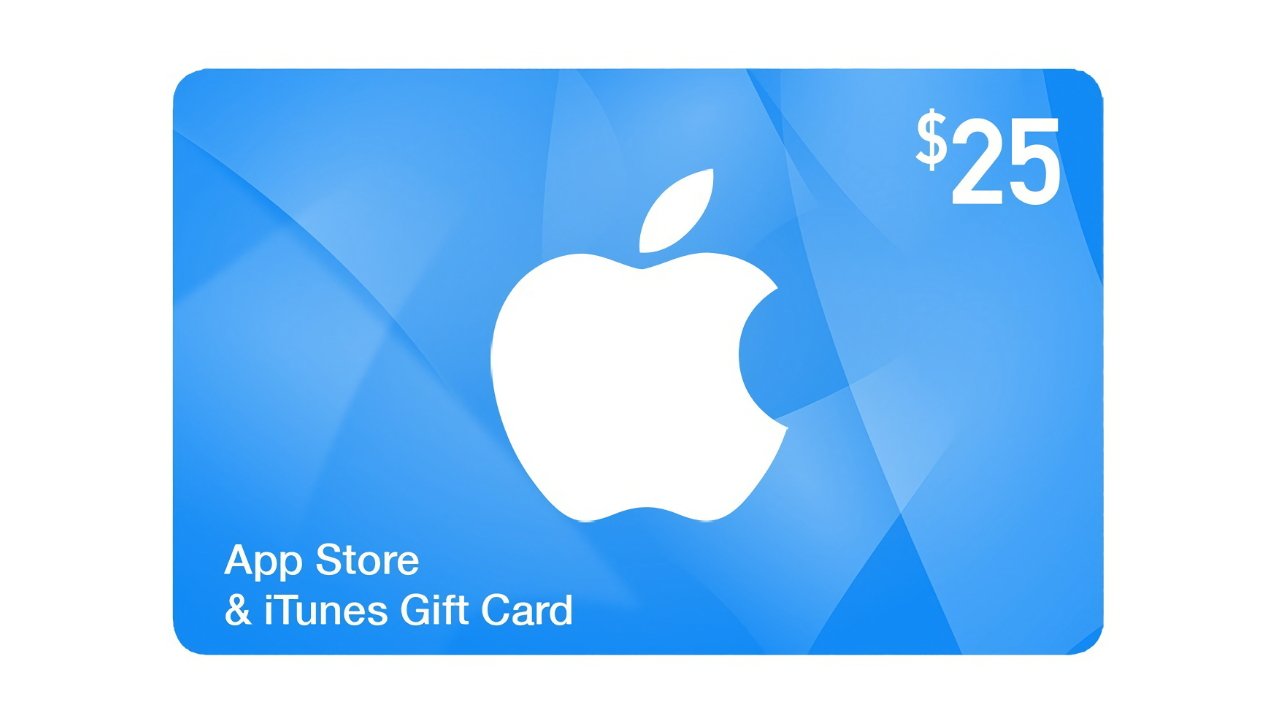Apple moves to settle gift card scam lawsuit
Apple has agreed to pay an as-yet undisclosed sum to settle a class-action lawsuit that claimed the company knowingly profited from scammers who stole its gift cards.

An Apple gift card
The original suit was filed in 2020 and alleged that Apple did not prevent scammers conning victims into sending them iTunes gift cards. Since Apple retails 30% of most items bought with a gift card, claimed the suit, it was profiting from the scam.
In 2021, US District Judge Edward Davila dismissed claims that Apple was perpetuating and benefiting from the scams, but did give the plaintiffs leave to amend their case and re-present it. Consequently, in 2022, a revised case was supported by Judge Davila.
Now according to Reuters, Apple has agreed to settle the suit. Court filings say that Apple and the plaintiffs have agreed on material settlement terms, following work with a mediator.
Neither Apple nor lawyers for the plaintiffs have commented. However, it's understood that the two sides are drafting a formal settlement that will be presented to Judge Davila.
The scam worked by victims being pressured into buying App Store, iTunes, or Apple Store gift cards. In each case the victims believed the payments were needed for urgent issues such as hospital bills, or debt collection, and sufficiently few questioned why payment was to be made in gift cards, that it proved to be profitable for scammers.
Victims bought the gift cards, and were then pressured to tell the scammers the codes on the back of the cards. This worked often enough, despite those cards all having a warning that said "Do not share your code with anyone you do not know."
Reuters says that according to the complaint, Apple would deposite 70% of stolen funds into the scammers' bank accounts, keeping 30% for itself. Overall, victims may have lost "hundreds of millions of dollars" because of the scam.
In the June 2022 revised ruling that allowed the case to continue, Judge Davila agreed with plaintiffs that Apple's attempts to disclaim liability were unconscionable.
Separately, a similar case was filed in 2020 alleging that Apple failed to "implement and maintain reasonable security procedures and practices to properly secure" its gift cards.
Read on AppleInsider

Comments
From that same article "Judge Davila rejected Apple’s appeal to dismiss the lawsuit on the grounds that the company could do more to help the victims even after they had been scammed."
I don't know if that's an accurate summary of the judgement, but that seems unusual to state it that way.
I'd think Apple will now have to do "more" to avoid similar lawsuits in the future.
Identify every app being used to launder gift cards ?
https://www.wmtv15news.com/2022/06/13/madison-woman-loses-11500-gift-card-scam/
A lot of the time it's foreign countries scamming people. This Youtube channel shows how they do it (10:30):
Gift cards over $200 in a certain timeframe should be flagged for extra verification.